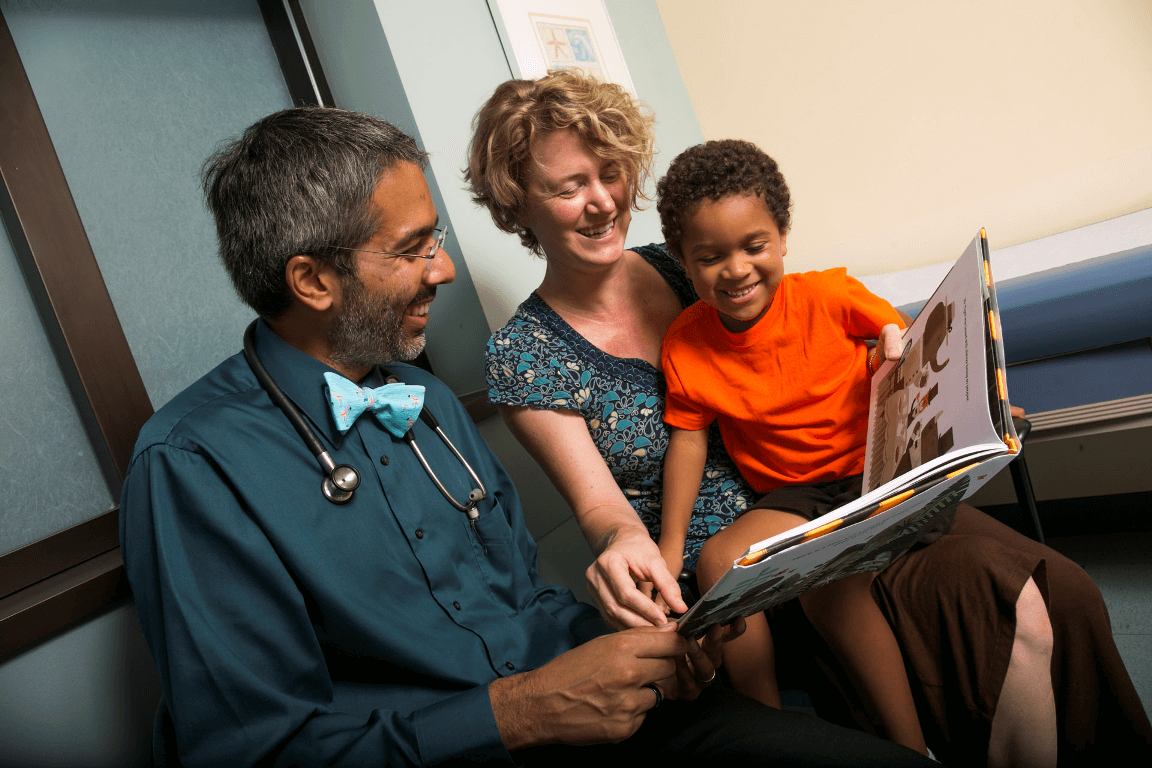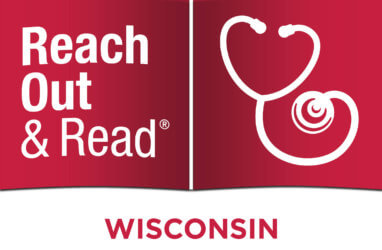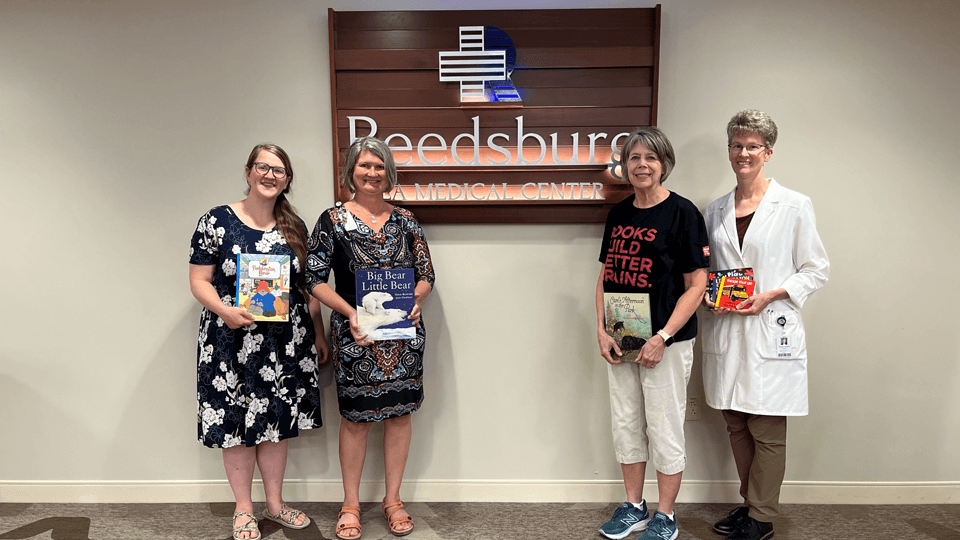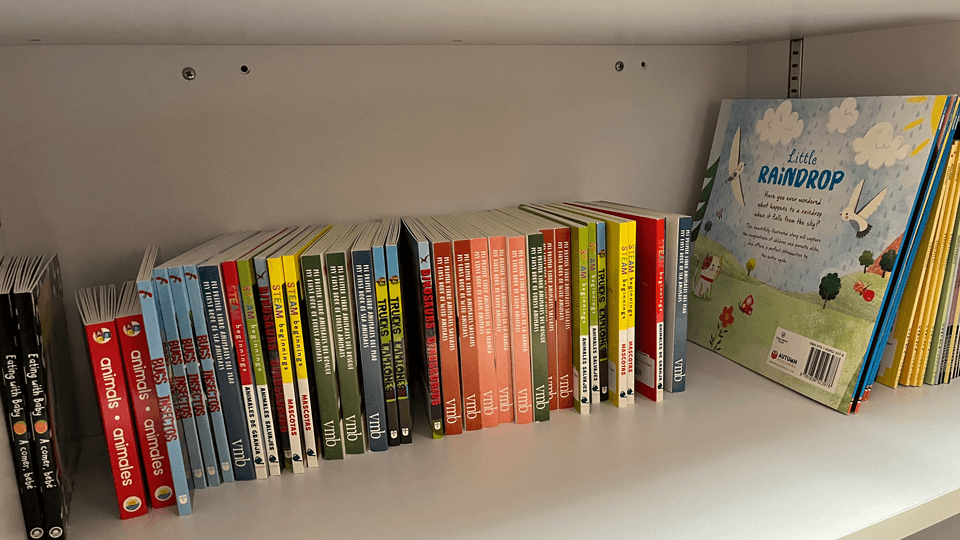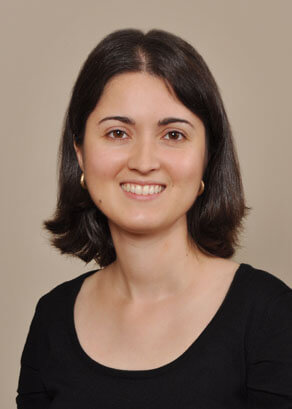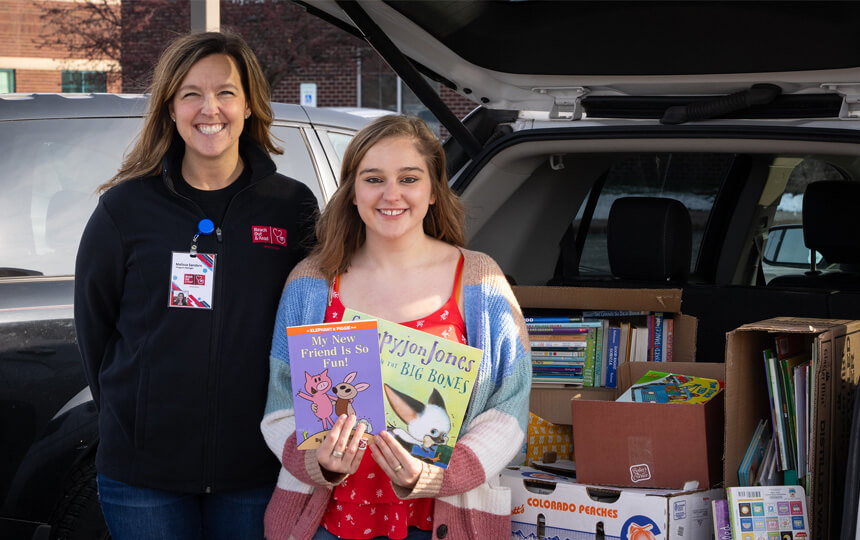
University of Wisconsin Oshkosh senior, Kallena Pluemer, is set to graduate in mid-December, move to Appleton, and start her career as an accountant. Prior to beginning life’s next step, Pluemer was able to leave an impact on some of the children of Oshkosh.
Despite being a UWO College of Business student with a focus on accounting, Pluemer’s roots are in education, with six generations of teachers in her family. So, when deciding on her business capstone project for her Business Growth and Development class, a project that needed to “move the needle” in some way, Pluemer knew education and literacy would be a part of it.
Pluemer decided to do a children’s book collection that would benefit the Reach Out and Read program at ThedaCare Physicians-Oshkosh. Reach Out and Read helps integrate reading into pediatric practices, advises families about the importance of reading with their children, provides an opportunity for families to build powerful, lasting bonds, and shares books that serve as a catalyst for healthy childhood development. Children get to leave with a book after each well-child visit from birth to five-years old.
“I have always loved to read, and my favorite place to shop as a child was a bookstore,” she said. “I worked and volunteered at a library in my hometown for a number of years, and I loved to see what a difference it made when children got to read.”
Pluemer noticed, however, how hard it was for a lot of the children to part with the books when it came time to return them and knew what a difference it could make if children had their own at-home libraries.
“My parents read to me a lot as a child and bought me a lot of books, and I wanted other children to have this opportunity as well,” she said. “I started asking my friends and family for books their children weren’t using anymore.”
She connected with her old boss Jessie Lee-Jones, library director at the Platteville Public Library, who suggested donating the books to a Reach Out and Read clinic in Oshkosh.
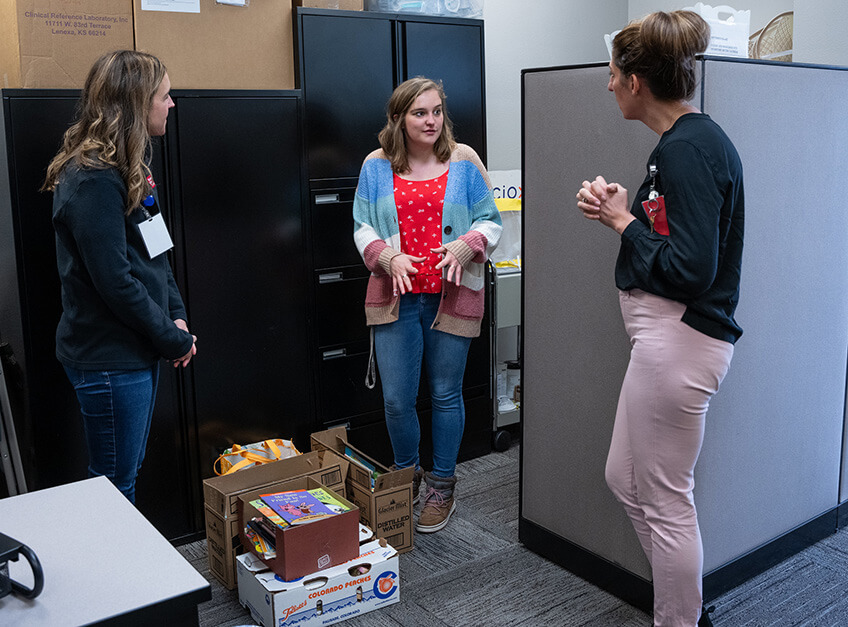
“As a parent, I have had the first-hand experience of benefiting from the Reach Out and Read program,” said Lee-Jones. “My kids always love to receive a new ‘forever book’ when they visit the doctor. As a library director, I know that it is so important to encourage a love of reading at a young age. I appreciate that healthcare providers can promote reading as an easy step to support a child’s brain development and to strengthen family bonds.”
Because of Lee-Jones’ passion for Reach Out and Read and support of Pluemer, the Platteville Public Library donated a few books and did a fundraiser, with the money going towards Pluemer’s project.
“Kallena has been part of the Plattevile Public Library team for many years,” said Lee-Jones. “Even after moving away to attend college, Kallena has kept in touch, and we are proud of all that she has accomplished. We were pleased to support her efforts to spread the joy of reading.”
In the end, Pluemer collected nearly 200 gently used children’s books from family, friends, professors at UW Oshkosh, and the Platteville Public Library.
“Everyone’s support was amazing,” she said.
She was able to drop the books off to ThedaCare Physicians-Oshkosh on Dec. 6 to Martha Harlow, a registered nurse and clinical supervisor, who was excited about the donation and the effort by Pluemer.
“We are extremely grateful to Kallena for her generous donation,” said Harlow. “We understand that reading daily with children, starting at birth, has a lasting effect on language and literacy development, caregiver-child relationships, and social and emotional health. We are very fortunate to receive additional books to continue the outreach with families.”
ThedaCare clinics have been participating in the Reach Out and Read program for several years. Every ThedaCare clinic participates in the program. Care teams have prescribed thousands of books to children in the region over the years.
Pluemer can now head to Appleton, degree in hand, knowing she helped in making a world where a child is read to every day.
